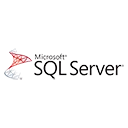Introduction
SQL Server Integration Services (SSIS) is a powerful ETL (Extract, Transform, Load) tool that allows you to create data integration and transformation workflows. This guide explores advanced SSIS development techniques, including sample code and examples.
1. Script Components
Script components provide custom code integration within SSIS data flows. You can use C# or VB.NET to perform complex data transformations and manipulations.
// C# script example
public override void Input0_ProcessInputRow(Input0Buffer Row)
{
// Perform custom data transformation
Row.OutputColumn = Row.InputColumn * 2;
}
2. Expressions and Parameters
Expressions and parameters in SSIS allow you to create dynamic and flexible packages. You can use expressions to configure properties at runtime, and parameters to store and manage configuration values.
Expression="@[User::Server] + \";Initial Catalog=\" + @[User::Database]" />
DataType="String"
Required="true" /> 3. Data Flow Transformations
SSIS provides a wide range of data flow transformations, such as sorting, merging, and aggregating data. These transformations can be customized to meet specific requirements.
4. Error Handling and Logging
Advanced SSIS packages include robust error handling and logging mechanisms. You can configure package logging and use event handlers to respond to errors and events.
EventType="OnError"
EventHandlerType="Script"
Executable="STOCK:PipelineBuffer"> 5. Deployment and Execution
After developing SSIS packages, you need to deploy and execute them. SQL Server provides tools and mechanisms for deploying packages to different environments.
-- Deployment using SQL Server Data Tools (SSDT)
-- Package execution using SQL Server Agent
Conclusion
Advanced SSIS development involves leveraging script components, expressions, parameters, data flow transformations, error handling, and package deployment. By mastering these techniques, you can create powerful ETL solutions that efficiently integrate and transform data in SQL Server.

